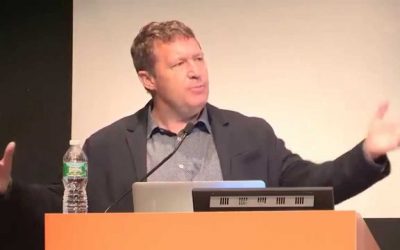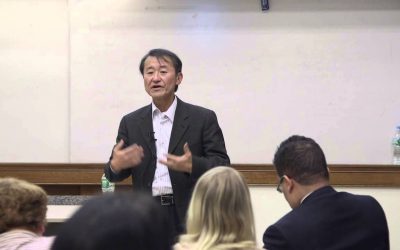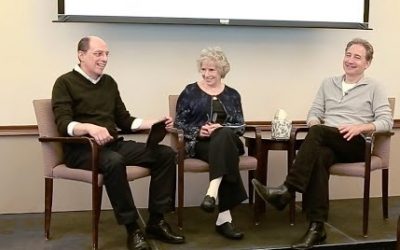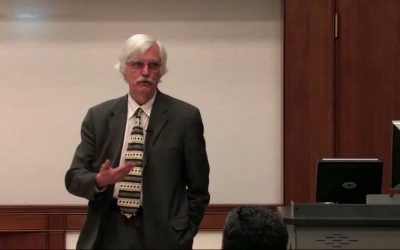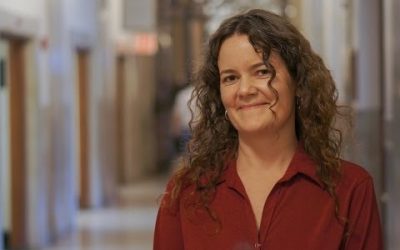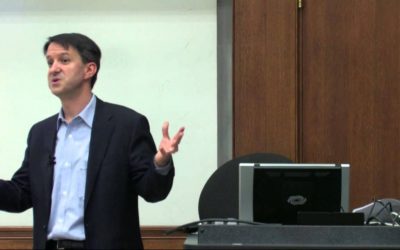Provost’s Conversations on Online Learning
The Provost’s Conversation on Online Learning (PCoOL) features public talks by leading experts and peers on the future of education, specifically around online education. PCoOL events are free and open to members of Columbia community with a valid University ID. Listed below are all the previous PCoOL talks held at Columbia University.
Learning with MOOCs 2015: Keynote Speaker George Siemens
On October 2-3, 2015, educators, technologists, researchers, learning scientists, entrepreneurs, and funders of MOOCs gathered at the LEARNING WITH MOOCS II Conference at Columbia University to share their innovations, discuss their impact on education, and look at the future of online learning.
Open CourseWare and MOOCs: Different Aspirations, Different Strategies
On Thursday, November 6, 2014, Shigeru Miyagawa presented at Conversations on Online Learning, a series of talks sponsored by the Office of the Provost and the Center for New Media Teaching and Learning (CCNMTL). One of the leaders in the movement to open university courses to the world, Miyagawa addresses what lessons online learning and MOOC producers can draw from the Open CourseWare movement and shows video from his own team-taught MOOC on edX.
World Science U, Online Learning, and the Changing Role of the University Professor
On Thursday, May 8, 2014, Brian Greene, a professor of physics and mathematics at Columbia University, was joined by Claudia Dreifus, a journalist and adjunct professor at Columbia’s School of International and Public Affairs. Maurice Matiz, acting executive director of the Columbia Center for New Media Teaching and Learning (CCNMTL), moderated the discussion.
Innovations in Online Learning
Marcia C. Linn, a professor at the University of California, Berkeley and leading researcher in the use of technology for teaching mathematics and science, spoke at Columbia University. In her talk, Linn draws on recent research to suggest promising directors for the use of innovative technologies to support effective online education.
Reinventing Education
Anant Agarwal, president of edX and a professor at the Massachusetts Institute of Technology, visited Columbia on , giving a presentation on how MOOCs and online learning are reinventing education. On the same day, Columbia University announced it had partnered with edX to provideMOOCs taught by Columbia faculty.
The Communitarian Possibilities of MOOCs
Al Filreis, a University of Pennsylvania English professor identified by The Chronicle of Higher Education as a key tech innovator of 2013, spoke at Columbia University. A video of his presentation, titled “Open Access Humanities, Open Pedagogy: Exploring The Communitarian Possibilities of MOOCs,” is now available.
The Future of Digital Learning
Harvard University’s Chris Dede visited Columbia gave a presentation on the future of digital learning in higher education. His presentation was part of Conversations on Online Learning, a series of talks sponsored by the University’s Office of the Provost and the Center for New Media Teaching and Learning (CCNMTL). CCNMTL’s video team captured Dede’s presentation, which you can view below.
Data is the New Oil: MOOCs, Metaphor, and Money
Audrey Watters, a leading freelance writer in the education field and author of the blog Hack Education, spoke at Columbia University. Watters’ talk, “(Student) Data is the New Oil: MOOCs, Metaphor, and Money,” examines “student data as the new oil” — the metaphor and the money behind education data and learning analytics as seen in MOOCs and other education technologies.
Talks on Technology & Higher Ed
Columbia Chief Digital Officer Sree Sreenivasan and the Columbia Center for New Media Teaching and Learning (CCNMTL) sponsored a speaker series at Columbia University featuring innovators in the fields of technology and higher ed. Videos of the two most recent talks – by Jeffrey Selingo, author and editor at large of The Chronicle of Higher Education and Candace Thille, Director of the Open Learning Initiative at Carnegie Mellon University – are now publicly available.Selingo’s talk, “Tomorrow’s College: The Future of Higher Education,” discussed how the perfect storm of financial, political, demographic, and technological forces are changing higher education forever.
The Online Revolution: Education for Everyone
Daphne Koller, Stanford University professor and co-founder of massively open online course (MOOC) platform Coursera, spoke at Columbia University.
Koller’s talk, “The Online Revolution: Education for Everyone,” discusses how the advent of MOOCs is transforming higher education. Dozens of top universities now offer MOOCs that span a range of topics including computer science, business, medicine, science, humanities, social sciences, and more. Launched in April 2012, Coursera now has over 3 million students, ranging from 10 to 90 years old, of whom 40% are in the developing world. In this talk, Koller reported on this far-reaching experiment in education, including some examples and preliminary analytics. She also discussed how this model can support an improved learning experience for on-campus students, via blended learning, and provide unprecedented access to education to millions of students around the world.
